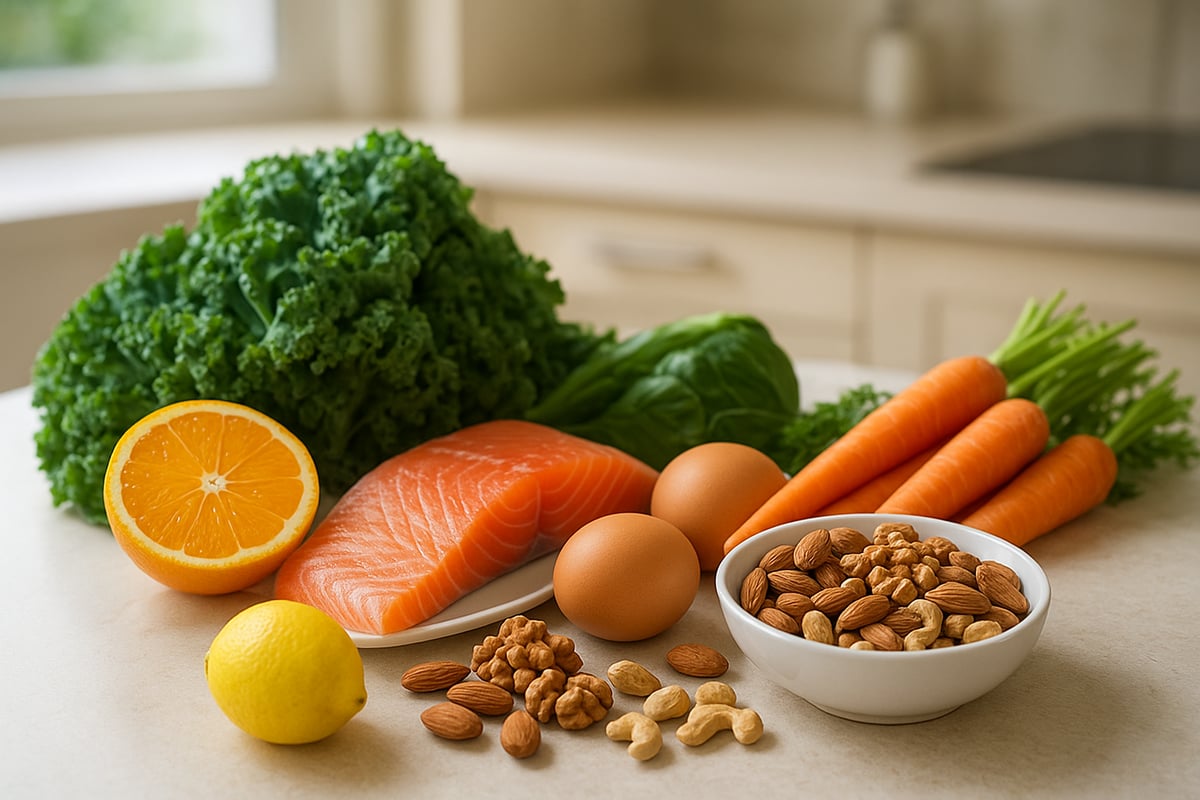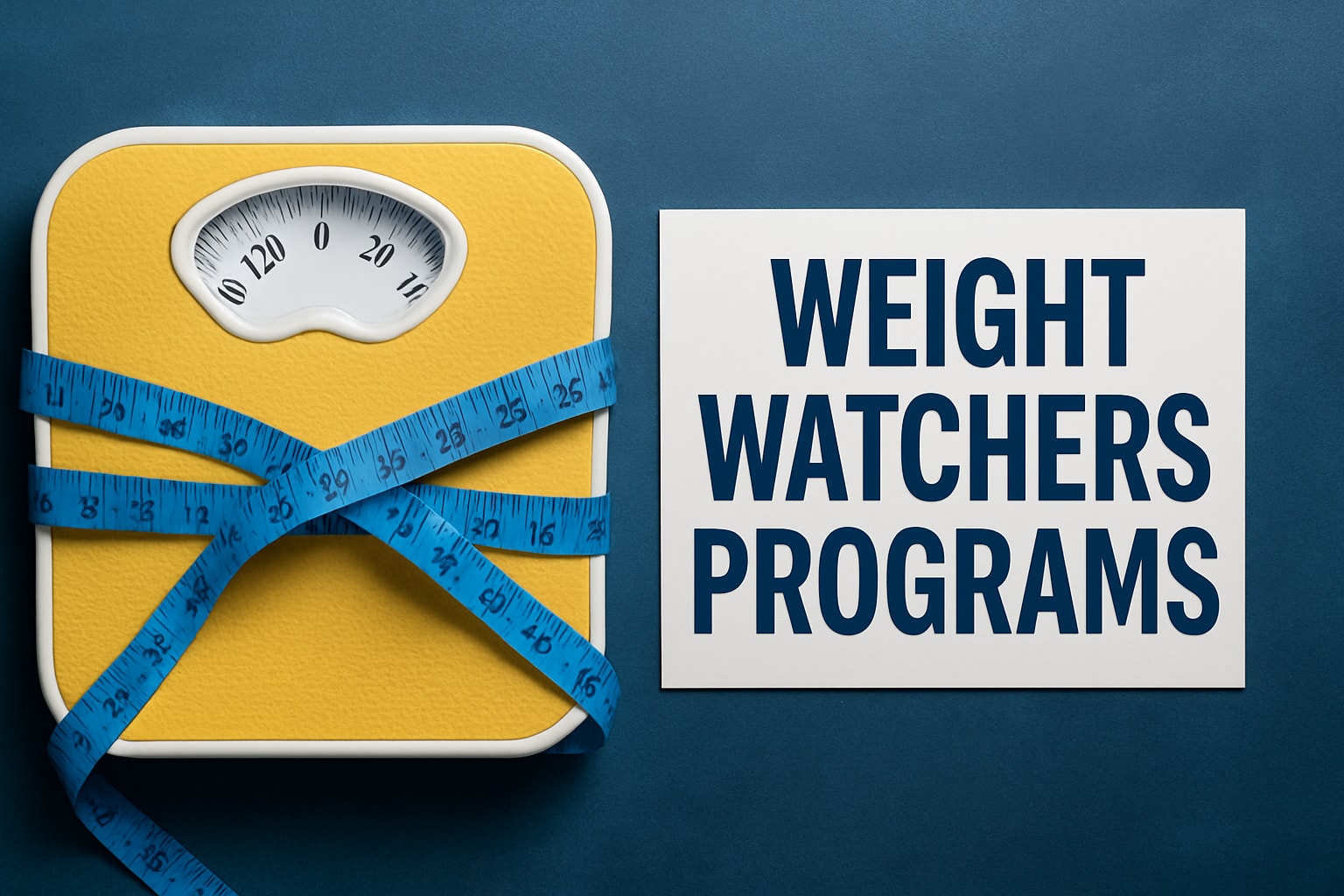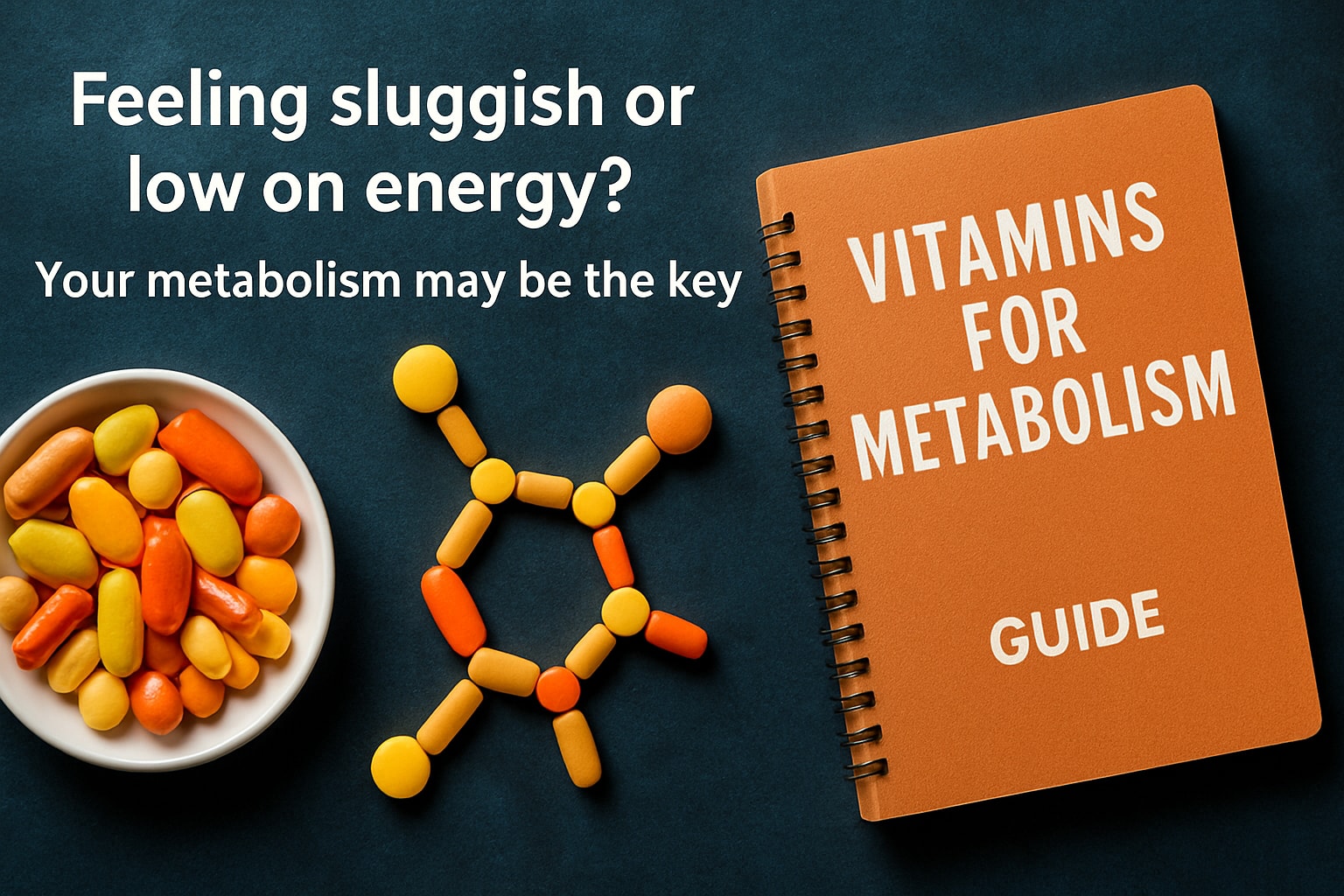Interest in natural weight loss solutions is set to surge in 2025, as more people seek effective and sustainable ways to reach their health goals. Vitamins play a vital role in fueling metabolism, boosting energy, and supporting fat loss. This article reveals 7 essential vitamins that help with weight loss, each backed by scientific research and practical advice. You will discover how these nutrients work, why they matter, and simple strategies for including them in your routine. Ready to embrace healthier habits? Explore modern weight loss strategies and unlock actionable insights that can transform your journey.
The Science Behind Vitamins and Weight Loss
Unlocking the secrets of effective weight management requires more than just counting calories. The science of vitamins that help with weight loss reveals how these essential nutrients drive metabolism, energy production, and fat burning at a cellular level. Understanding this connection is key for anyone aiming to achieve lasting results.

How Vitamins Influence Metabolism and Fat Burning
Vitamins that help with weight loss are essential for converting food into usable energy. Micronutrients like B vitamins and vitamin D act as cofactors in metabolic pathways, ensuring that carbohydrates, fats, and proteins are broken down efficiently.
When the body lacks certain vitamins, metabolism can slow, making it harder to lose weight. For example, insufficient B12 or vitamin D can impair fat oxidation, reducing the body's ability to burn stored energy. Research shows that optimal intake of vitamins that help with weight loss supports better fat metabolism and energy levels.
The body absorbs water-soluble vitamins (like B and C) differently from fat-soluble ones (A, D, E, K). Factors such as genetics, gut health, and lifestyle choices all influence how effectively these vitamins are utilized. Addressing these factors can help ensure the body receives the full benefit of vitamins that help with weight loss.
Common Vitamin Deficiencies That Stall Weight Loss
Many adults struggle with deficiencies that directly impact their weight management journey. The most common gaps include vitamin B12 and vitamin D. According to the CDC, up to 40 percent of adults have insufficient vitamin D, which can lead to fatigue, poor mood, and stalled weight loss efforts.
Symptoms of deficiencies may include low energy, brain fog, increased cravings, and difficulty shedding pounds. When these issues are addressed, individuals often notice a boost in metabolism and improved results from their efforts. Correcting deficiencies in vitamins that help with weight loss can be a critical step in achieving lasting progress.
For example, supplementing vitamin B12 has been linked to enhanced exercise performance and reduced fatigue, allowing for more consistent activity. Recognizing and resolving these common deficiencies can jumpstart a plateaued weight loss journey.
Modern Diets and the Challenge of Getting Enough Vitamins
Modern eating habits present unique challenges in obtaining enough vitamins that help with weight loss. Processed foods, restrictive fad diets, and a lack of dietary variety often lead to significant micronutrient gaps. Even those focused on calorie-counting may overlook the importance of nutrient density, risking deficiencies that can sabotage their goals.
Studies analyzing popular weight-loss diet plans highlight the prevalence of these micronutrient gaps, emphasizing the need to prioritize vitamin-rich foods. For more insight into these findings, explore this research on micronutrient gaps in weight-loss diets.
Practical solutions include increasing food variety, choosing whole foods, and considering targeted supplementation when necessary. Mindful eating and regular meal planning help ensure consistent intake of vitamins that help with weight loss, supporting metabolism and overall health.
7 Essential Vitamins That Help With Weight Loss in 2025
Unlocking the power of vitamins that help with weight loss can be a game changer for your 2025 health journey. Recent research shows that correcting vitamin imbalances supports metabolism, appetite control, and fat loss—giving you a natural advantage. Let us explore the seven vitamins at the forefront of science this year, revealing how they work and how you can seamlessly add them to your diet for lasting results.

1. Vitamin D
Vitamin D stands out among vitamins that help with weight loss due to its direct impact on fat storage and insulin sensitivity. Recent studies show that individuals with sufficient vitamin D tend to have lower body fat percentages and better appetite regulation. Deficiency is widespread, especially in regions with limited sunlight, and can lead to increased cravings and slower metabolism.
Natural sources of vitamin D include sunlight, fatty fish like salmon and sardines, egg yolks, and fortified dairy or plant milks. For those living in northern climates or spending most time indoors, supplementation may be necessary, especially during winter months. Always check your levels through a blood test before starting supplements, as excessive intake can be harmful.
Symptoms of deficiency may include fatigue, low mood, and unexplained weight gain. Correcting this gap can enhance your body's ability to burn fat and maintain energy. For more on the importance of vitamin D, explore this Vitamin D deficiency overview for additional insights.
Make it a habit to get outside daily, enjoy vitamin D-rich meals, and consider a high-quality supplement if recommended by your healthcare provider. For those seeking more holistic strategies, check out these smart weight loss strategies to support your journey.
2. Vitamin B12
Among vitamins that help with weight loss, vitamin B12 plays a critical role in energy metabolism. It helps convert food into usable energy and prevents fatigue—especially vital during calorie reduction. Vegans, older adults, and those with digestive issues are at higher risk of deficiency, making regular monitoring essential.
Top food sources include eggs, dairy products, lean meats, and fortified cereals. Research shows that maintaining optimal B12 levels can improve exercise performance, mood, and overall metabolic rate. If you notice persistent tiredness or trouble losing weight, ask your doctor about testing for B12.
Supplementation is often necessary for those on plant-based diets or with absorption issues. Choose methylcobalamin or cyanocobalamin forms for best results. Incorporating B12-rich foods into weekly meal prep can make a real difference. Explore more healthy meal planning tips to ensure you are covering all your vitamin needs for sustainable weight loss.
3. Vitamin C
Vitamin C is another of the vitamins that help with weight loss through its effect on fat oxidation during moderate-intensity exercise. Studies reveal that individuals with higher vitamin C status oxidize up to 30% more fat during activity, compared to those with lower levels. Beyond metabolism, vitamin C also reduces inflammation and supports muscle recovery.
Excellent sources include citrus fruits, strawberries, bell peppers, broccoli, and tomatoes. If you are looking to boost your intake, consider adding a daily fruit salad, fresh vegetable snacks, or a vitamin C-rich smoothie to your routine.
Higher vitamin C levels are consistently linked to lower BMI and healthier body composition. Simple changes, like swapping processed snacks for fresh produce, can make a substantial impact. For creative recipe ideas, see these superfoods that support fat loss and discover delicious ways to eat more vitamin C every day.
4. Vitamin E
Vitamin E earns its place on the list of vitamins that help with weight loss for its role in protecting cells from oxidative stress. By reducing inflammation, vitamin E supports better metabolic health and may help prevent slowdowns in fat burning. Recent evidence suggests that adequate vitamin E intake is linked to improved insulin sensitivity and cardiovascular function.
Key dietary sources include nuts (almonds, hazelnuts), seeds (sunflower, pumpkin), and plant oils (olive, sunflower). Including a variety of these in your meals ensures you get enough without overdoing it. While supplementation can be useful for those with documented deficiencies, it is important not to exceed recommended doses, as excessive vitamin E can interfere with blood clotting.
Balance your intake by enjoying a mix of raw and roasted nuts, adding seeds to salads, and using healthy oils in cooking. For further guidance on avoiding common nutritional pitfalls, review these common weight loss mistakes and optimize your vitamin E intake.
5. Vitamin B6
Vitamin B6 is vital among vitamins that help with weight loss due to its influence on amino acid metabolism, mood, and appetite regulation. It supports thyroid function, which is closely tied to metabolic rate and fat-burning efficiency. Research shows that adequate B6 can help reduce water retention and curb cravings, making it easier to stick to your goals.
You will find B6 in poultry, bananas, chickpeas, potatoes, and whole grains. For those with dietary restrictions, fortified plant-based alternatives are also available. To maximize absorption, pair B6-rich foods with a balanced source of protein and healthy fats.
Incorporate more B6 into your daily meals by preparing dishes like grilled chicken with roasted chickpeas or banana smoothies. For more inspiration, explore these evidence-based supplement guidance to determine if B6 supplementation is right for you.
6. Vitamin A
Vitamin A is a standout among vitamins that help with weight loss thanks to its regulatory effects on fat cell development and hormone balance. Studies have linked vitamin A deficiency to increased body fat and disrupted metabolic signaling. Both animal and plant-based sources offer unique benefits for optimal intake.
Liver, eggs, and dairy are rich in preformed vitamin A, while carrots, sweet potatoes, and dark leafy greens provide beta-carotene, which your body converts as needed. For better absorption, pair vitamin A-rich foods with a small amount of healthy fat, such as olive oil or avocado.
Monitor your intake carefully—while deficiency can hinder weight loss, excessive supplementation may be toxic. Focus on food-first strategies and consult a healthcare provider before adding high-dose supplements. Find more tips on how to stop late-night eating and maintain balanced nutrition in this Oneleaf Journal article.
7. Vitamin K
Rounding out the list of vitamins that help with weight loss, vitamin K supports glucose metabolism and cardiovascular health. New findings highlight its role in reducing abdominal fat and working synergistically with other fat-soluble vitamins. Leafy greens, broccoli, and fermented foods are top sources.
Vitamin K is often overlooked, but it plays a crucial part in long-term metabolic wellness. It complements vitamins A, D, and E, enhancing their absorption and effects. Aim for daily servings of spinach, kale, or sauerkraut as part of your meal plan.
For personalized recommendations and a complete guide to building vitamin-rich habits, explore these habit-building for weight loss strategies. To understand how micronutrient adequacy impacts weight loss maintenance, see this diet quality in weight loss maintainers study for valuable insights.
How to Incorporate These Vitamins Into Your Diet
Incorporating vitamins that help with weight loss into your daily routine does not have to be complicated. A strategic blend of nutrient-rich meals, smart grocery habits, and thoughtful supplementation can empower you to meet your health goals. With the right approach, you can fuel your metabolism and support fat loss efficiently.

Building a Balanced, Vitamin-Rich Meal Plan
A successful meal plan starts with variety. Aim to fill your plate with whole foods that naturally supply vitamins that help with weight loss. Include plenty of leafy greens, citrus fruits, lean proteins, and healthy fats at each meal.
Rotate your protein sources—such as eggs, fish, poultry, and legumes—to cover different vitamins. For instance, start your morning with a spinach and mushroom omelet, enjoy a quinoa salad with chickpeas and bell peppers for lunch, and opt for grilled salmon with sweet potatoes for dinner. Each combination supports your intake of vitamins that help with weight loss.
If you have dietary restrictions, such as vegan or gluten-free needs, focus on plant-based proteins, fortified foods, and a variety of produce. For more inspiration, explore these healthy meal planning tips. Meal prepping on weekends can save time and ensure you always have vitamin-rich options ready.
Smart grocery shopping is essential. Make a list that prioritizes foods high in B vitamins, vitamin D, and antioxidants. Try batch-cooking recipes from the Oneleaf Journal articles for additional guidance on boosting metabolism with food. You can also find seasonal produce suggestions and insider strategies on smart weight loss strategies.
Remember, consistency is key. Small, daily changes—like adding a handful of berries to breakfast or choosing leafy greens for salads—can make a significant difference. For those managing hormonal changes, the Guide to Weight Loss During Menopause offers targeted advice.
Looking for more creative ideas? Discover new recipes and practical grocery lists on meal prep for success.
Supplementation: When and How to Use It Wisely
While food should be your first source for vitamins that help with weight loss, supplementation can fill nutritional gaps. Factors like limited sun exposure, dietary restrictions, or increased physical demands may require extra support.
Before starting any supplement, assess your needs. Consult a healthcare provider for personalized recommendations and to check for potential interactions with medications. Opt for high-quality, third-party tested products to ensure purity and potency. If you are curious about global trends, recent research on global micronutrient inadequacies highlights how common deficiencies can impact progress.
Avoid exceeding recommended doses, as more is not always better. Instead, focus on a balanced approach, combining food and supplements as needed. For in-depth supplement guidance, check out these evidence-based supplement tips.
Track your progress and adjust as your needs change. Tools and resources on habit-building for weight loss can help you stay consistent. You can also explore strategies for mind-body weight loss techniques to optimize your results.
For a deeper dive into the science behind supplementation, visit our Oneleaf Journal article.
Lifestyle Factors That Maximize Vitamin Effectiveness
Unlocking the full potential of vitamins that help with weight loss requires more than just dietary adjustments. Your daily habits, from how you move to how you rest, play a decisive role in how well your body utilizes these essential nutrients.

Exercise, Sleep, and Stress Management
Physical activity is a powerful catalyst for vitamins that help with weight loss. Regular movement, like brisk walking or cycling, not only burns calories but also boosts nutrient absorption and metabolism. When you exercise, your body's demand for certain vitamins increases, ensuring they are used efficiently to support energy production and fat breakdown.
Quality sleep is equally vital. Poor rest disrupts hormone balance, leading to cravings and impaired absorption of vitamins that help with weight loss. Studies show that adults who get 7–9 hours of sleep per night maintain healthier metabolic rates and are less likely to experience micronutrient deficiencies. Consider creating a calming bedtime routine and limiting screen time for better sleep hygiene.
Managing stress is another cornerstone. Chronic stress elevates cortisol, which can sabotage your weight loss goals and deplete your body's reserves of key vitamins. Mindful practices such as yoga, meditation, or even a peaceful nature walk can lower stress levels, support hormonal balance, and promote more effective use of vitamins. For more strategies, explore these mind-body weight loss techniques.
If you want further guidance, the Oneleaf Journal on weight loss mindset offers expert insights into how lifestyle choices amplify the benefits of vitamins that help with weight loss.
The Importance of Consistency and Habit Formation
Consistency is the secret to getting results from vitamins that help with weight loss. Building healthy routines ensures your body receives a steady supply of nutrients, which is critical for sustained metabolism and fat burning. Set regular meal times and plan weekly workouts to reinforce these habits.
Tracking progress can make a big difference. Use digital tools or apps to log meals, supplements, and activity. This accountability helps you spot gaps and celebrate milestones. Explore these habit-building tips for weight loss for practical ideas.
Sustainable change comes from small, repeated actions. Start by adding a serving of leafy greens to your lunch or taking a short walk after dinner. Over time, these habits compound, optimizing the impact of vitamins that help with weight loss. For meal planning support, check out these healthy meal planning tips.
If you're looking for inspiration, read about inspiring transformations from people who improved their results by focusing on daily consistency. For more ways to overcome late-night snacking, visit the Oneleaf Journal on stopping late-night eating.
Stay consistent, keep learning, and let lifestyle choices elevate the effectiveness of vitamins that help with weight loss.
Real-Life Success Stories and Expert Insights
Many people have found that optimizing their intake of vitamins that help with weight loss can be a real turning point. Addressing deficiencies often leads to improved energy, better appetite control, and more effective fat loss. Let's look at how real individuals and experts approach this strategy.
Case Studies: People Who Achieved Weight Loss with Vitamin Optimization
Consider Sarah, who struggled with low energy and plateaued weight loss for years. After a nutritionist tested her vitamin D and B12 levels, she started a targeted plan. Within three months, Sarah noticed fewer cravings and a steady drop in weight. She credits her progress to focusing on vitamins that help with weight loss and making small, sustainable changes.
A recent inspiring transformation from the Oneleaf community highlights another success. Mark, a busy professional, realized his restrictive diet missed key nutrients. By adding more leafy greens and healthy fats, he corrected a vitamin K deficiency and saw improved results. His journey underscores the importance of a smart, holistic approach to weight management.
Experts echo these experiences. Registered dietitian Dr. Emily Carter explains, “Addressing vitamin gaps can jumpstart progress for those feeling stuck. It’s not just about calories, but about nourishing your metabolism.” For more on this, see Oneleaf Journal’s coverage of weight loss mindset.
Common themes emerge from those who succeed:
- They test for deficiencies and personalize their nutrition
- They focus on food quality, not just quantity
- They use evidence-based supplement guidance when needed
By learning from others, you can use vitamins that help with weight loss to support your own journey.
Further Reading and Resources
To dive deeper into the science and practical tips, explore these trusted resources:
- Healthy meal planning tips for building a nutrient-rich diet
- Mind-body weight loss techniques to support consistency and balance
- Habit-building for weight loss for sustainable change
- Oneleaf Journal: How to Stop Late-Night Eating
- Oneleaf Journal: Weight Loss Mindset
You’ll find that focusing on vitamins that help with weight loss, along with these strategies, can make a measurable difference. Consider bookmarking these links for ongoing support and expert insights.
If you’re ready to begin, start with a personalized plan and explore more smart weight loss strategies today.
Now that you know how essential vitamins play a crucial role in natural weight loss and how to make smarter choices for your health in 2025, why not discover the best starting point for your own journey? You deserve a plan tailored to your unique needs and goals—not a one-size-fits-all approach. If you’re ready to take the first step toward real, lasting change, I invite you to uncover your personalized strategy with Oneleaf’s neuroscience-based support. It only takes a few minutes to find out what will work best for you—just Start Quizz.















